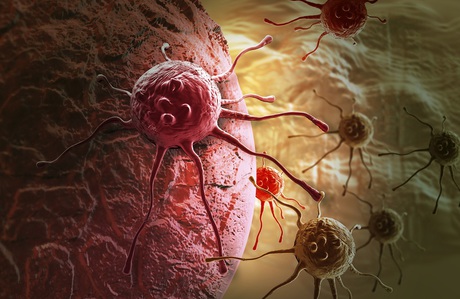Fusion drug achieves tumour reduction

Breast cancer expert Associate Professor Pilar Blancafort has conducted an expanded study to show that the biologics drug Omomyc, fused to a cell-penetrating peptide (CPP) called 1746, can be used to treat cancer in an animal model.
The 1746-Omomyc fusion, developed by drug discovery company Phylogica (ASX:PYC), inhibits the activity of oncoprotein MYC — an intracellular cancer target that has been found to be undruggable with conventional therapies.
In a pilot study conducted by Professor Blancafort at the Harry Perkins Institute of Medical Research earlier this year, a substantial reduction in tumour size was observed in tumours injected with the fusion when compared to controls. Phylogica Chief Scientific Officer Dr Paul Watt said this was “the first time anyone has shown a CPP-Omomyc fusion protein to be active in vivo”; the study just needed to be repeated in larger groups to confirm its significance.
The latest study, also conducted at the Harry Perkins Institute, utilised triple-negative breast cancer cells — which are typically resistant to treatment with conventional drugs — in larger numbers of animals than the original. Once again, Professor Blancafort observed a statistically significant reduction in the size of tumours injected directly with the fusion when compared to controls. He also observed that inhibition of tumour growth was sustained even after cessation of treatment, suggesting prolonged impact of the fusion drug.
“We were very pleased to observe such strong effects of the 1746-OmoMyc fusion against a particularly aggressive multidrug-resistant tumour,” Professor Blancafort said. “The fact these effects were sustained in the absence of drugs, combined with the lack of evidence for drug-related toxicity in animals treated with 1746-Omomyc, is very encouraging.”
“By penetrating into the actual cancer cell, we have a potentially novel and highly effective means of killing cancer cells,” added Dr Watt. “We are delighted the results of the pilot study were independently reproduced with larger cohorts of animals.”
With proof of concept now achieved, Phylogica’s future focus will be on establishing the efficacy of its own proprietary cargoes against high-value intracellular targets; confirming that tumour inhibition is replicable when the CPP-cargo combination is delivered systemically (eg, intravenously) rather than by direct injection; and continuing the transition from concept to product for evaluation in a clinical trial.
Phylogica (ASX:PYC) shares were trading 16.67% higher at $0.014 as of around 10.30 am on Thursday.
AI-designed DNA switches flip genes on and off
The work creates the opportunity to turn the expression of a gene up or down in just one tissue...
Drug delays tumour growth in models of children's liver cancer
A new drug has been shown to delay the growth of tumours and improve survival in hepatoblastoma,...
Ancient DNA rewrites the stories of those preserved at Pompeii
Researchers have used ancient DNA to challenge long-held assumptions about the inhabitants of...




